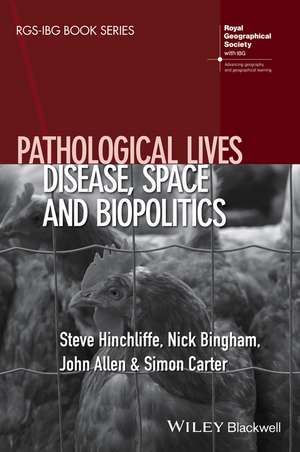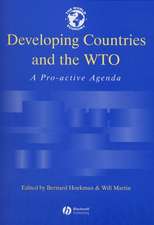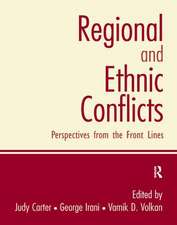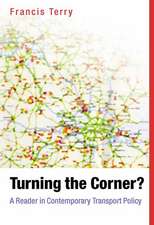Pathological Lives – Disease, Space and Biopolitics: RGS-IBG Book Series
Autor S Hinchliffeen Limba Engleză Paperback – 22 dec 2016
Din seria RGS-IBG Book Series
-
 Preț: 211.77 lei
Preț: 211.77 lei -
 Preț: 253.14 lei
Preț: 253.14 lei -
 Preț: 212.66 lei
Preț: 212.66 lei -
 Preț: 211.23 lei
Preț: 211.23 lei -
 Preț: 267.88 lei
Preț: 267.88 lei -
 Preț: 275.75 lei
Preț: 275.75 lei -
 Preț: 212.66 lei
Preț: 212.66 lei -
 Preț: 212.11 lei
Preț: 212.11 lei -
 Preț: 283.84 lei
Preț: 283.84 lei -
 Preț: 360.52 lei
Preț: 360.52 lei - 8%
 Preț: 569.04 lei
Preț: 569.04 lei -
 Preț: 246.82 lei
Preț: 246.82 lei -
 Preț: 256.40 lei
Preț: 256.40 lei -
 Preț: 278.70 lei
Preț: 278.70 lei -
 Preț: 339.54 lei
Preț: 339.54 lei - 8%
 Preț: 538.20 lei
Preț: 538.20 lei -
 Preț: 265.63 lei
Preț: 265.63 lei - 9%
 Preț: 791.32 lei
Preț: 791.32 lei -
 Preț: 284.43 lei
Preț: 284.43 lei - 8%
 Preț: 563.60 lei
Preț: 563.60 lei -
 Preț: 283.07 lei
Preț: 283.07 lei -
 Preț: 272.38 lei
Preț: 272.38 lei - 8%
 Preț: 560.95 lei
Preț: 560.95 lei - 8%
 Preț: 564.31 lei
Preț: 564.31 lei -
 Preț: 284.98 lei
Preț: 284.98 lei -
 Preț: 268.89 lei
Preț: 268.89 lei -
 Preț: 282.18 lei
Preț: 282.18 lei - 8%
 Preț: 539.07 lei
Preț: 539.07 lei -
 Preț: 296.14 lei
Preț: 296.14 lei - 8%
 Preț: 535.15 lei
Preț: 535.15 lei - 8%
 Preț: 451.62 lei
Preț: 451.62 lei - 8%
 Preț: 568.34 lei
Preț: 568.34 lei - 8%
 Preț: 560.76 lei
Preț: 560.76 lei -
 Preț: 276.40 lei
Preț: 276.40 lei -
 Preț: 292.88 lei
Preț: 292.88 lei -
 Preț: 301.25 lei
Preț: 301.25 lei -
 Preț: 264.64 lei
Preț: 264.64 lei - 8%
 Preț: 560.06 lei
Preț: 560.06 lei - 8%
 Preț: 536.42 lei
Preț: 536.42 lei
Preț: 211.28 lei
Nou
Puncte Express: 317
Preț estimativ în valută:
40.43€ • 42.32$ • 33.45£
40.43€ • 42.32$ • 33.45£
Carte disponibilă
Livrare economică 15-29 martie
Livrare express 01-07 martie pentru 24.93 lei
Preluare comenzi: 021 569.72.76
Specificații
ISBN-13: 9781118997604
ISBN-10: 1118997603
Pagini: 264
Dimensiuni: 151 x 234 x 13 mm
Greutate: 0.34 kg
Editura: Wiley
Seria RGS-IBG Book Series
Locul publicării:Chichester, United Kingdom
ISBN-10: 1118997603
Pagini: 264
Dimensiuni: 151 x 234 x 13 mm
Greutate: 0.34 kg
Editura: Wiley
Seria RGS-IBG Book Series
Locul publicării:Chichester, United Kingdom
Public țintă
Academics, researchers, policy makers and scholars within Geography, Anthropology, Sociology, Philosophy, Science and Technology Studies, Agriculture, Food and Veterinary Sciences; also those interested in current issues surrounding life, health and emerging infectious diseasesCuprins
Notă biografică
Steve Hinchliffe is Professor of Human Geography at Exeter University, UK. He is an elected Fellow of the Academy of Social Sciences and author and editor of numerous books and articles on issues ranging from risk and food, to biosecurity, urban ecologies and nature conservation. He sits on the UK's Food Standards Agency Social Science Research Committee and has advised DEFRA on responses to exotic disease events.
Nick Bingham is a Senior Lecturer in the Faculty of Social Sciences, The Open University, UK. Nick's current areas of research focus include the management of food safety, responses to the pollination crisis, and matters of coordination in smart cities. He is the author of numerous journal articles and book chapters and is joint editor of Contested Environments (with Andrew Blowers and Chris Belshaw, 2003).
John Allen is Professor of Economic Geography in the Faculty of Social Sciences, The Open University, UK. His teaching and research experience includes work on issues of power and spatiality, more recently in relation to financialization, privatization, biopower and topology. His publications include Lost Geographies of Power (Oxford, Blackwell, 2003) and Topologies of Power: Beyond Territory and Networks (2016), in addition to numerous authored and edited books. Simon Carter is a Senior Lecturer in the Faculty of Social Sciences, The Open University, UK. Hisresearch interests are in Science and Technology Studies, especially as applied to issues of health and medicine. Most recently, he has been working on an ESRC funded study into how biosecurity interfaces with other concerns in our globalized world. He is the author of Rise and Shine (2007) as well as numerous book chapters and journal articles.
Descriere
Pandemics, epidemics and food borne diseases have become one of the key challenges for contemporary global society. The central claim of Pathological Lives is that any solution offered to these kinds of emerging and often communicable diseases requires a broad-based geographical scrutiny.

















